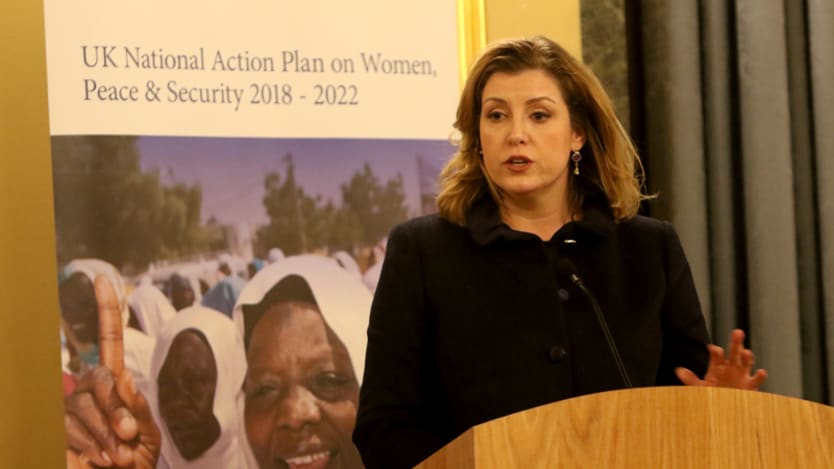
LONDON — United Kingdom aid chief Penny Mordaunt raised eyebrows last week after declining to give a firm answer about whether her department would still exist in five years’ time.
Conservative politicians, including Mordaunt’s predecessor Priti Patel, have repeatedly floated the possibility of the Department for International Development being abolished or replaced. Former foreign secretary Boris Johnson raised the specter again earlier this month when he called for it to be merged with the Foreign & Commonwealth Office.
Asked by Financial Times reporters last week whether her department would definitely exist in five years’ time, Mordaunt refrained from giving a categorical answer and added that it was “not an independent department” because of cross-government spending and cooperation.
Could DFID be absorbed by the UK Foreign Office?
U.K. politicians have repeatedly suggested that DFID should merge with the foreign office — but could it really happen, and what would the consequences be?
The government is currently pursuing a strategy that will see 30 percent of U.K. aid spent outside DFID by 2020. Some DFID staff have been deployed to other departments to help and are working on shared funding pots such as the Conflict, Stability and Security Fund and the Prosperity Fund.
“Seventy [of my staff] are in [the Department for International] Trade, there are some of them in the foreign office ... we now have a base in the Cabinet Office because we’re looking at cross-government funds,” Mordaunt said. “We are a technical department and a hugely valuable entity.”
Nilima Gulrajani, senior research fellow at the Overseas Development Institute, a London-based think tank, said she was “a little surprised by [Mordaunt’s] comment,” pointing out that “DFID was created as an independent department in 1997” with a separate secretary of state.
“CSSF and the Prosperity Fund are mechanisms to enhance cross-governmental collaboration but I wouldn’t have thought they challenged the formal status DFID has,” she said.
Although DFID is well-regarded for its technical expertise, “it is materially different from a technical agency like Sida or Norad [the Swedish and Norwegian aid agencies]," she added.
A DFID spokesperson said: “DFID is a standalone government department. This is government policy and there is no suggestion this is going to change.”
Mordaunt was asked in the same interview about the aid budget and the U.K.’s commitment to the 0.7 percent — a proportion of gross national income set by the United Nations as an aid-spending target. The U.K. is currently committed to the target by law, although some Conservative politicians would like to see the budget lowered. Mordaunt argued that “the debate has somewhat moved on from 0.7” and that “a lot of the discussion that you’ll see … will focus less on that number and [more on] what we’re doing with it.”
She also said there has been “real appetite” from the City, the U.K. financial sector’s hub, for her plan of getting more private sector money invested in Africa. “If we could just get 1 percent of the funds under investment in the City invested in Africa, it would more than double global aid flows,” she said.
Search for articles
Most Read
- 1
- 2
- 3
- 4
- 5








